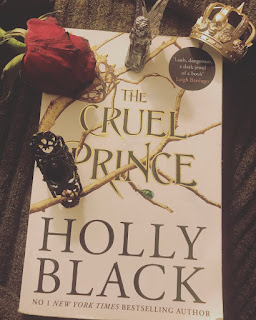Author: Sue Black
Publication: 2018
Genre: non-fiction, autobiography, memoir
Pages: 339
My Rating: ★★★★
What if death is just the beginning of a different phase of existence?
As morbid as it sounds, I've always been fascinated by death. I think it's a topic that deserves more positive discussions within our western culture. When I discovered this book on forensic anthropology it piqued my curiosity, so I knew I had to give it a read.
Dame Sue Black is one of the world's leading anatomists and forensic anthropologists. Her area of expertise is identifying people from their mortal remains and her extensive career has covered some significant discoveries in modern history.
Rather than focus on specific cases, the narrative in this book explores death in all its guises and through a range of situations that Black has experienced in personal and professional circumstances.
The author takes us through her life —starting with a Saturday job in the butches and then soon onto university where she spent a lot of her time in a lab dissecting a cadaver. She recalls criminal cases she's worked on, her upsetting involvement in identifying children's bodies in Kosovo and the Tsunami-ravaged Thailand, the different ways of disposing of the dead (my favourite chapter), the latest development of embalming techniques and considers her own thoughts on death.
Black is a formidable writer. She gives us just enough levity to ease the difficult subject matter and her attitude towards death is fascinating to read. She is open and honest with personal experiences of grief and trauma, and she discusses some of the more harrowing aspects of her career with frankness. The emotional strength and resilience Black has are admirable and she seems to genuinely embody an incredible healthy approach to the mental health issues associated with any profession which deals with traumatic incidents.
I thought this book would be quite a hard one to read due to the sensitive and grave topic of death that many of us struggle to talk, let alone read about, but to my surprise, Black eases us in with her quirky sense of humour and wit. In many books that I've read, gallows humour is either ignored, alluded to, or employed simply to shock the reader. Black, however, manages to bring us into the fold without being insensitive or inappropriate. She incorporates humour whilst maintaining the reality of humanity and sensitivity and I found myself smiling and laughing along with her, seeing the lighter side along with the dark.
From the get-go, Black establishes a clear voice. Her Scottish matron, no-nonsense persona comes through so clearly, and it's such a contrast with the subject matter that I couldn't help but find it amusing. The book's alive with her own down-to-earth personality and it's one of the things I love about this book.
Some parts are of high comedy—her great Uncle dropping dead in his bowl of tomato soup, for example (what a way to go) and others are extremely poignant—her work in Kosovo and Thailand. For me, these are the most gripping chapters of the book.
I must admit, I struggled at times due to some of the disturbing and emotional content which could be a little graphic. In particular, the chapters about the author having to identify the copious bodies of children during the war crimes and genocide. It's heartbreaking and intense, but extremely interesting. The dedication Black showed to such distressing work is admirable and I think it should be an inspiration to us all. It is certainly a job that Black has stepped up to and in her telling, she provides a commendable service to those dead and alive with such dignity and respect.
Despite the challenging content, I enjoyed reading about the author's warm approach to death. Something that will always stick with me is her saccharine personification of death. Seeing death as an omnipotent female is just that little more comforting, and for me, it eliminates the fear of dying and death a little bit more.
The only reason why this book lacks five stars is because of a slight factual overload. Black tends to heap a load of scientific facts and statistics together in some sections of this book and I felt like these particular sections lacked momentum. At times, it felt like I was reading a paragraph from a report and the clump of information went straight over my head. Ultimately, I lost interest and found myself skipping over these parts. Unlike myself, you might love reading declarative sentences about scientifical statistics and figures but for me, I found it a little dry. That's the only negative thing I have to say about this book!
Overall, All that remains is an honest, thought-provoking and fascinating insight into the world of forensic anthropology. Sue Black has a beautiful way of looking at death and is not only incredibly accomplished with her work, but has done so with grace and tact. This book lets you enter into the world of anthropology in a way that is accessible and comprehensible. The science is lucidly explained and Black's personal reflections are as touching as they are stimulating. As expected from a book like this, it can be a little disturbing and emotional to read but Black never fails to give us that compassion, understanding and warmth.
This book and the author's wisdom have stayed with me long after I finished reading it. I'm filled with admiration and honour for Dame Sue, anatomy professors and their students and not forgetting those who have donated their bodies to science.
I cannot recommend this book enough and perhaps like me, you'll close the last page becoming a little wiser, more knowledgeable and less fearful about death herself when she comes to take us away. (Plus, you get to find out the careful way to cut off someone's limbs and the 17th-century approach to making human blood jam, so I suppose that's always a bonus, right?)














